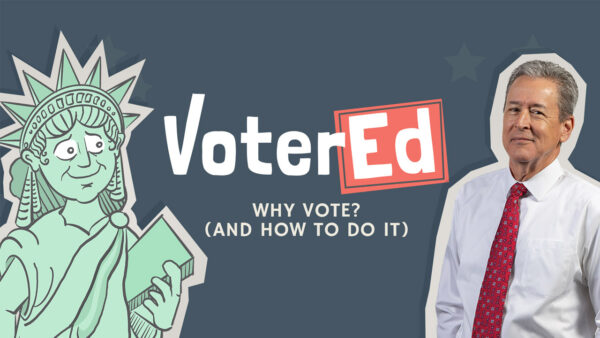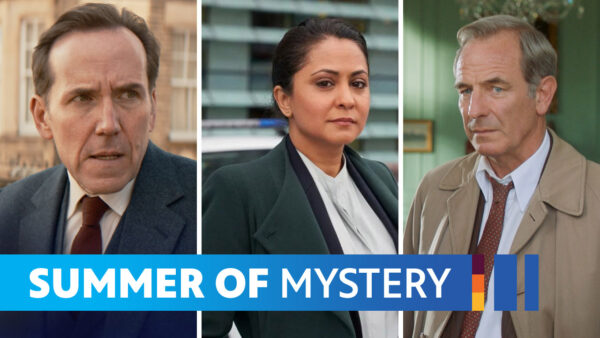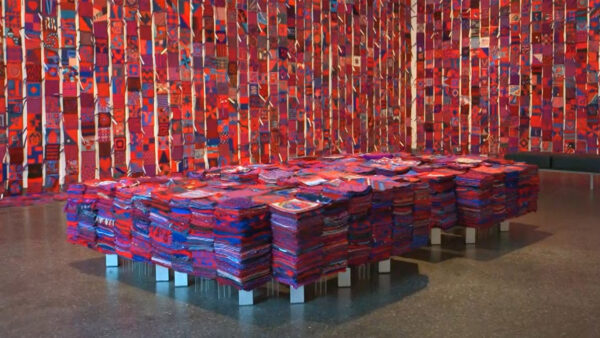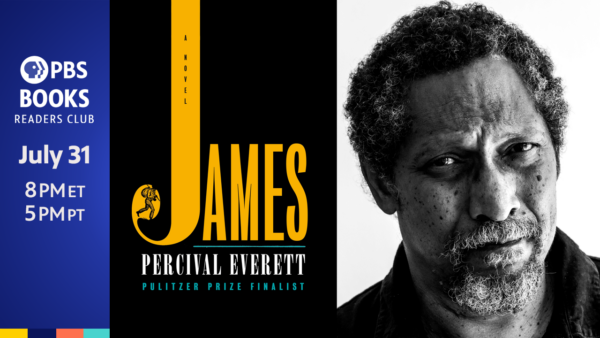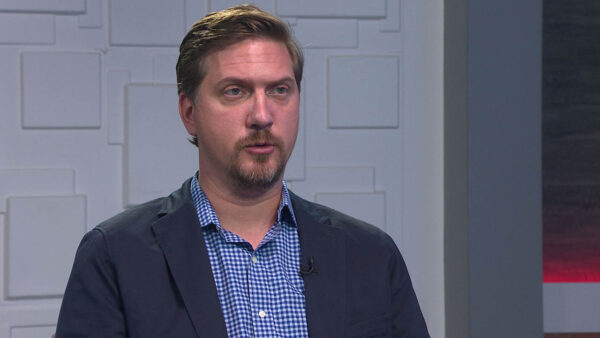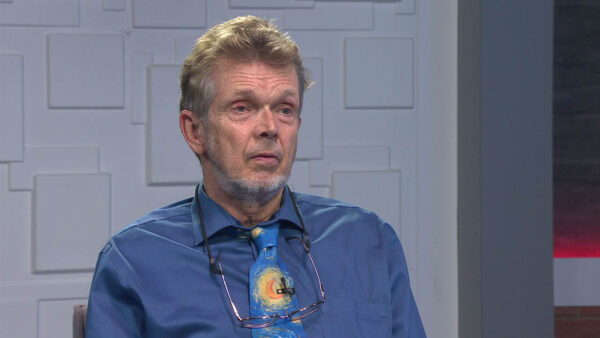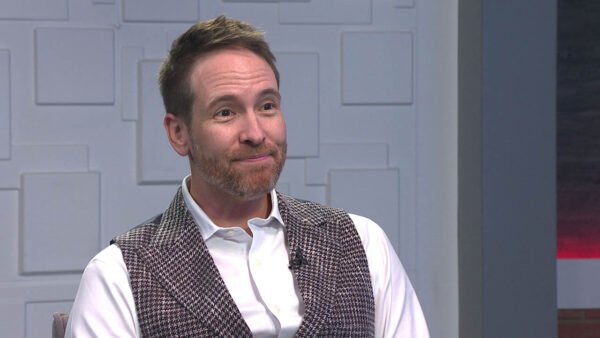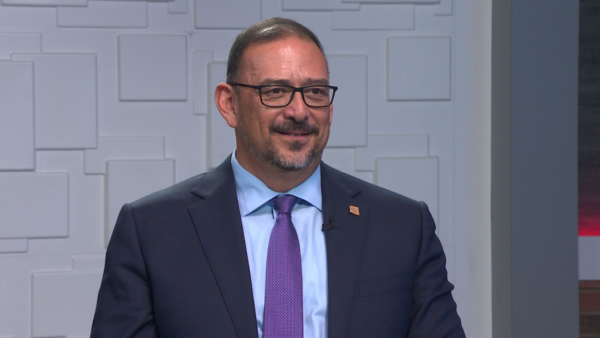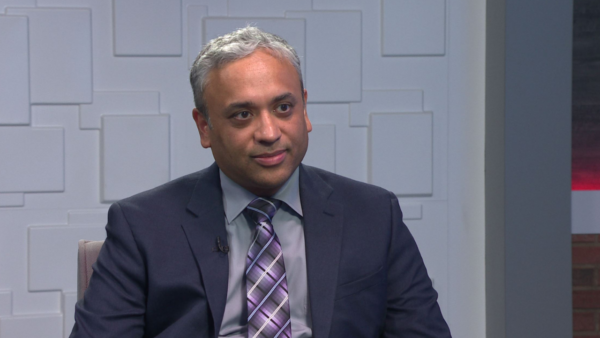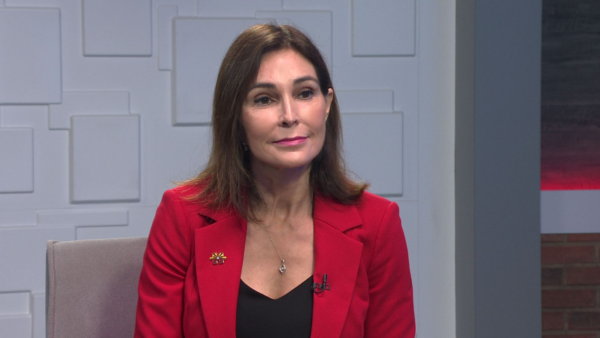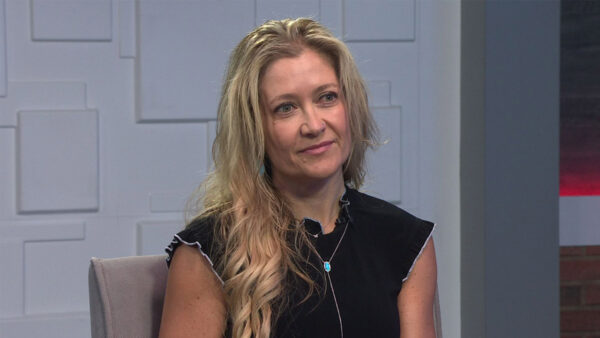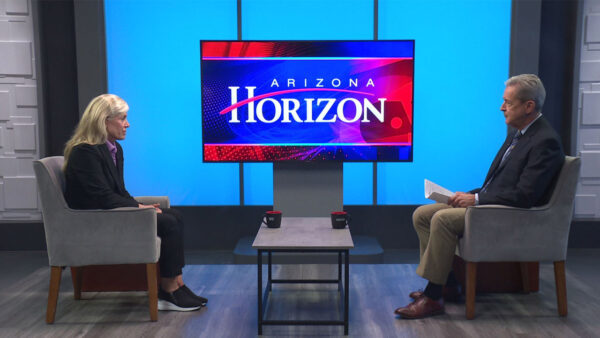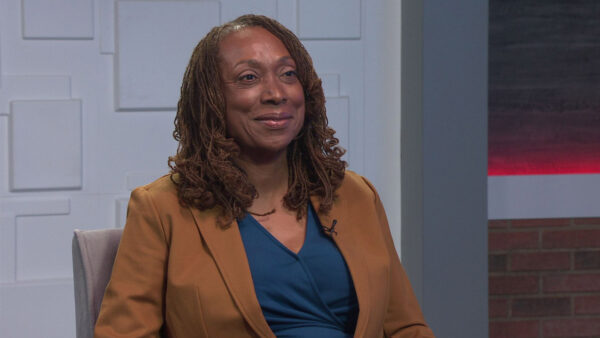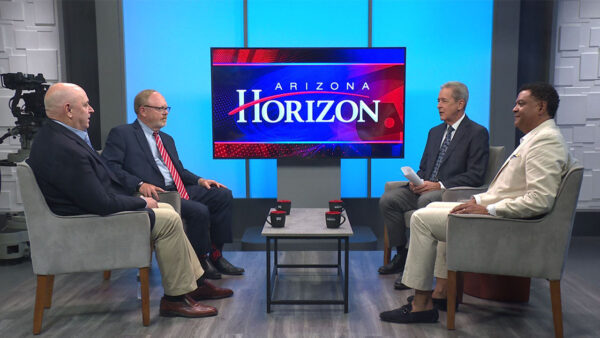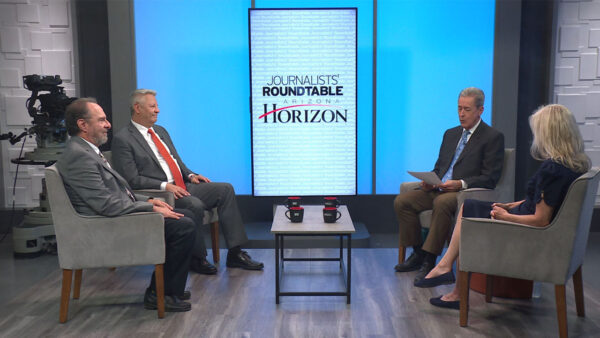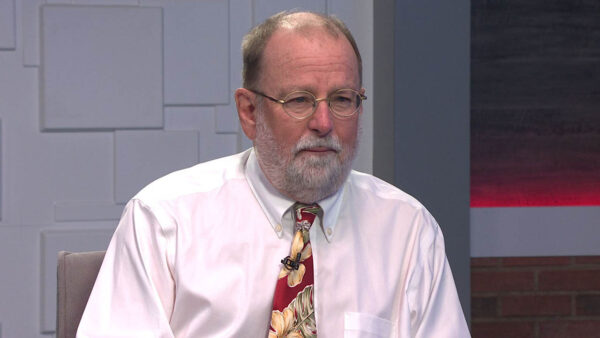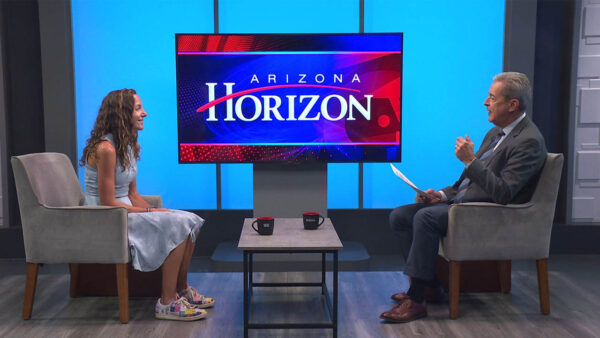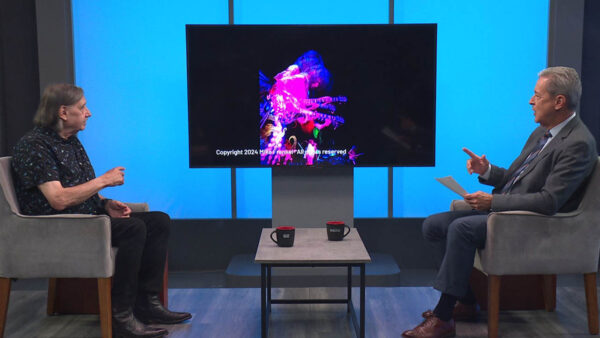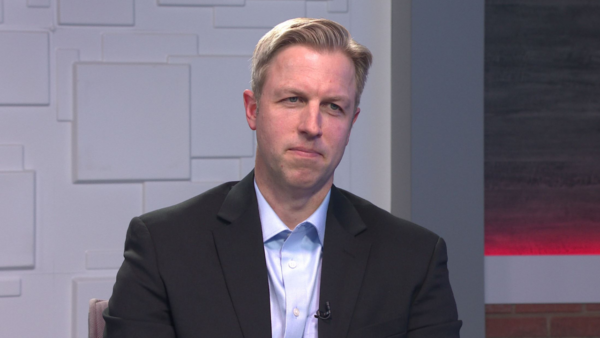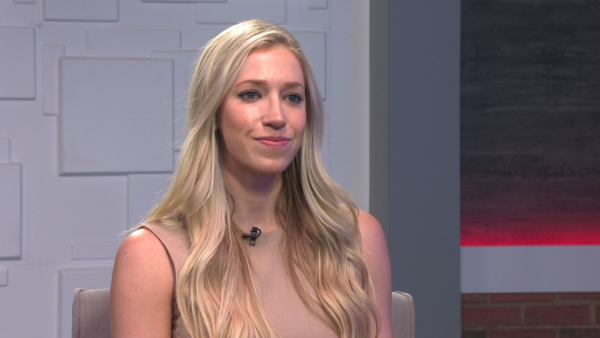Arizona Secretary of State Ken Bennett is asking the State Supreme Court if a state sales tax initiative should be placed on the November General election ballot. Bennett explains why he’s appealing a lower court’s ruling that said the initiative should be placed on the ballot.
Ted Simons: Last month, Arizona secretary of state Ken Bennett disqualified a ballot initiative that would effectively make permanent a one-cent sales tax. State sales tax. The reason, language on the circulated petition sheets did not match language provided to secretary Bennett's office. But a lower court judge ruled that the initiative could still appear on the ballot. The secretary of state's office is now appealing that decision to the state Supreme Court here to talk about all this is secretary of state Ken Bennett. Good to have you here, thanks for joining us.
Ken Bennett: Thank you, Ted. Good to be here.
Ted Simons: Why should this initiative not be on the ballot?
Ken Bennett: It should be on the ballot if they have followed the law. That is very specific, is that allows these initiatives to be on the ballot. The initiative process is very important in Arizona, one of the two things that we were held up becoming a state a hundred years ago. But the constitution and the laws are very specific, and one of the main ones says that any organization that's proposing a law before they print origin to circulate it, they have to file an application in our office on a form that we provide that has the text of what the law is going to be. And it's very important that that is filed correctly, and in this case, the committee filed one version of what they wanted to do, and then they unfortunately made a mistake and circulated a different version. And it's not a minor change. It's not a typo or missing word, it changes by hundreds of millions of dollars how the tax money would be distributed. Less money goes to K-12 education in the changed version, and more money goes to infrastructure projects. So fundamentally they filed one version, and then they circulated a different version, and the statutes are very, very clear and precise that you have to file the correct version and you have to attach the correct version to the petition.
Ted Simons: Did they not file that other version on disk with your office?
Ken Bennett: No. There's only one filing. They tried to file on a disk, and two of our employees confirmed to them that the filing is done on paper. It's very important that it's done on paper, because when they give it us the copies, we stamp each page as received, and then we give back to them, in fact it's right here, we give back to them the paper copy. And the most important part of what we give back to them, in addition to the text that they gave us, is a little box that says how many signatures are required, when they have to turn them in, and the serial number that we assign to that petition. So they did not file two versions, even though they have argued that in their pleading.
Ted Simons: The judge seems to suggest nowhere in state law does it say the paper copy is quote unquote official. And that your office could very easily, considering the circumstances, taken that differing copy and swap it out, considering this copy, which was on the petition signatures, that particular version.
Ken Bennett: The law says that this application is filed on a form to be provided by the secretary of state. That's what 19111 says. And we stamp date and go through this very detailed process in order to avoid voter confusion. Because immediately upon accepting the paper copies from them, we put that up on our website and people start to look at that version of a proposal, and maybe begin to evaluate it. Very few people if they're coming out of a grocery store and someone sticks a signature page in front of them, and it's attached to a 14-page proposal, they don't have time to read 14 pages. So they're usually finding out about it and the official place to find out to avoid voter confusion is the paper copy that's filed in our office.
Ted Simons: OK. The judge in this case said that basically your decision undoes the validity of 290,000 signatures over a photo copy error.
Ken Bennett: It's not a photocopy error in our opinion, because they added two whole paragraphs after the version they filed with us, and those two paragraphs change how the money is distributed by hundreds of millions of dollars. And yes, we're respectful of the 290,000 that signed the petitions. But there's another 3 million voters in our state who are going to probably find out about what does the initiative do, the entire legislative analysis process. There's a joint legislative budget office that reviews the official version that's on our -- in our office, there's the alleged council that reviews it. So again, this whole process is to avoid voter confusion so that organizations aren't filing one copy, or one petition and submitting another one at the end of the three months they have to summit.
Ted Simons: But as far as the judge's decision was concerned, his ruling, he called it I think he used the word capricious and arbitrary in not taking what they submitted on disk, which is what was on the signatures, the petitions, that's what folks read or supposedly were supposed to read before they signed. That same thing was on the disk, you had the disk, it's obvious that's what was out there. I think the judge's ruling was that, hey, it's there, why don't you swap them out there's nothing that says you can't do that.
Ken Bennett: If you do that, the whole process becomes suspect that a committee could essentially come in, file multiple versions or file one version and then come later in and say, what we had the signatures collected on, what the voters signed on was a different version. To avoid that bait and switch, whether it's intentional or not, the committee made a mistake and they gave us one copy and they circulates a different copy. And the state law says an organization intending to propose a law before causing the petition to be printed and circulated, shall file with the secretary of state an application on a form to be provided by the secretary of state. We do that on paper, because we have to give them back on the paper how many signatures they need, when they have to turn it in, and the serial number that has to be attached. I thought it interesting the judge said, I don't see anything in the law that says it has to be on paper. And yet on the ruling that he issued, on the third page where he signed, at the bottom it says "alert -- according to Arizona Supreme Court administrative order, civil cases must still be initiated on paper."
Ted Simons: I think -- trying to figure out what the judge was trying to say, let me try to paraphrase what I think he was trying to say. That is that you were trying to guard against voter confusion and that's the goal of what you're doing. Voters supposedly read what they read, signed it or didn't sign it, that was offered to your office by way of disk, and yes, the paper that was submitted was not the same thing, but you had on disk what was the same thing. If anything, you could have diffused voter confusion by simply using the disk copy that they signed anyway out there in the field.
Ken Bennett: The disk copy that was not filed. They tried to file it, we said no. The paper copy is the official version. They said we'll keep that, didn't even go into the file we gave to it a person who later might have been able to use it in the publicity pamphlet. The key is that we have to avoid voter confusion, and we have to make sure that there's one official version. The constitution and the state statutes say a full and correct copy has to be attached to the petition pages. For there to be a full and correct copy, there has to be a full and correct original, it can't be an almost full and pretty much correct --
Ted Simons: And what you're saying is, even if that full and correct copy they signed, they summited on disk, that doesn't matter because the original one submitted on paper did not match.
Ken Bennett: Correct. What they filed was the paper version, that's what we gave them a receipt back to. Yes, some people may have read the version that they circulated with the petition, but there were hundreds maybe thousands of others that looked at the version that was on our website, and decided to or not to sign or started evaluating what the initiative did based on the official version that was on our website.
Ted Simons: Do you think -- two questions -- Arizona Daily Star you wrote a piece, the quote was if the judge rules the initiative can be placed on the ballot, our office will complete our work and place the measure on the ballot. You're not doing that. What changed?
Ken Bennett: What I -- what we said when I was responding to people was that if a judge or judges, the copy that went to the daily sun or whatever it was, omitted the judge or judges, because I have always, as is now playing out, anticipated this would end up at the Supreme Court level. No one knew how the superior court judge would rule, and if he had ruled the other way I'm 1,000% confident that the quality education and jobs committee would be appealing it to the Supreme Court. The Supreme Court is the highest court of our state, they are the ones that should make a decision of this importance.
Ted Simons: Last question, folks will be hearing this, some will agree, and those that disagree will say, this is a technicality from someone who doesn't like this initiative, pushed by people who don't like this initiative, you're looking for a way out as opposed to the general overview, even the judge was saying, substantially voters were not confused. They knew what they were signing. How do you respond?
Ken Bennett: Something that changes how the money goes out by hundreds of millions of dollars. For a permanent forever tax, is not a technicality. And however we feel, our office doesn't take a position on whether we support an initiative or not. We get some we like we get some we might not like, but that has nothing to do with how we process it. Our job is to follow the law precisely. We believe we did that. We disagree with the lower court judge's ruling and the Supreme Court justices will say whether they agree with us or him.
Ted Simons: Indeed. It's good to have you here. We appreciate it.
Ken Bennett:Arizona Secretary of State;
